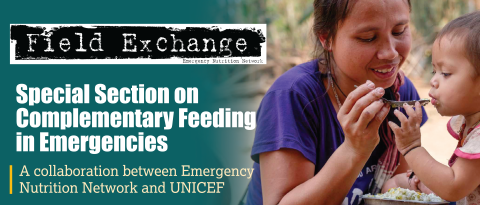How has COVID-19 impacted nutrition services in Sri Lanka?
This is a summary of the following report: Jayatissa R & Denuwara B (2021) Quantity, quality and gap of the nutrition services received by children living in urban underserved settlements in Sri Lanka during the COVID-19 pandemic.
*Although this report was accurate at the time of publication, Sri Lanka’s former President, Gotabaya Rajapaksa, stepped down on 15th July, after fleeing the country due to protests in response to a growing fuel, food, and medicine crisis driven by a shortage of foreign currency. It is unclear how this has affected maternal and child nutrition services since this report was published.
Before the COVID-19 pandemic, Sri Lanka faced a major public health problem of maternal and child undernutrition. Fast forward a few years and the combination of pandemic-mandated travel restrictions and lockdowns has placed a significant toll on this island nation that has recently been hit hard by spiralling food and fuel costs (Reliefweb, 2022). In the capital Colombo, a 2020 study revealed an increase in child wasting prevalence. Based on these concerns, this cross-sectional descriptive study was commissioned to assess the quantity, quality, and possible gaps in the nutrition services received by children living in the urban underserved settlements within the Colombo municipal area and the Medical Officer of Health areas of Dehiwala and Kolonnawa.
In total, 538 households with 376 children under five years were included in the study. Roughly two thirds of the households in the study were under lockdown measures in the six months leading up to the study, with 94.4% receiving government assistance in the form of food and/or cash.
The rate of exclusive breastfeeding for children under six months was 69.4% and 90.4% of children under the age of two were currently being breastfed. Both figures are significantly higher than the global averages of approximately 40% and 55% respectively (UNICEF, 2018), although Sri Lanka has traditionally experienced nearly universal breastfeeding rates thanks in part to the success of the Baby Friendly Hospitals Initiative (UNICEF, 2018). Breastfeeding rates were comparable to the pre-pandemic period for 78.9% of children, although nearly one third of children under two years were formula fed. Minimum dietary diversity (70.4%), meal frequency (86.4%), and minimum acceptable diet (68.8%) were adequate amongst children aged 6-23 months although this was lower than pre-pandemic levels.
The report identified a need to mainstream training on optimal infant and young child feeding (IYCF) and to provide additional tailored nutrition training with supportive supervision for Public Health Midwives, who are the main source of information on IYCF for families, to improve adherence to IYCF guidelines.
Overall, nutrition services for children aged 6-59 months were maintained during the pandemic with adequate mother awareness and perception of services also observed. However, nutrition supplementation services such as targeted vitamin A (46.9%), multiple-micronutrient (15.5%), and Triposha (51.6%) – a fortified maize, soy, and milk powder blend – were highlighted as having a low coverage that required improvement. Important gaps in services for the management of wasting were identified, including low staff capacity and weak referral mechanisms. Only half of the children who were referred to nutrition clinics for treatment attended.
The report recommended the strengthening of overall facility preparedness and service delivery for the appropriate management of wasting which, together with improvements in service delivery on appropriate IYCF and micronutrient supplementation, should improve nutrition outcomes among this vulnerable group of children.
References
Reliefweb (2022) Sri Lanka: Food Security Crisis – Apr 2022. reliefweb.int
UNICEF (2018) Breastfeeding


